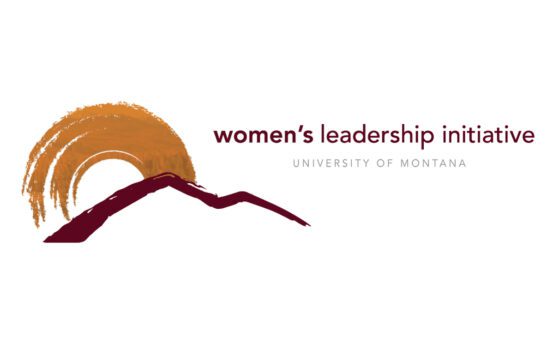MFCU & UM Partner on Women’s Leadership Initiative

In keeping with the University of Montana’s commitment to building a safe and empowering campus and one that accelerates women’s careers of impact, President Seth Bodnar announced the relaunch of the Women’s Leadership Initiative for the 2019-20 academic year. This relaunch will be supported financially by private donor support, featuring a new partnership with the Clearwater Credit Union.
Initially launched in 2015, the Women’s Leadership Initiative uses a collaborative approach to build a culture of support for women’s leadership. The program is cohort-based and focuses on the development of female faculty and staff members while also supporting UM students, employees and alumni with career advancement and leadership training.
“We are a stronger UM when we foster opportunities for all people to lead and grow. The WLI is one important way to empower women and recognize their contributions,” Bodnar said. “The re-launch of the WLI aligns with our ‘mission first, people always’ priority for action and is an important part of our perpetual striving to be and do better for everyone who is a part of the UM family, now and in the future.”
The new cohort will include 10 UM employees and two MFCU employees, modeling a public-private partnership that will benefit campus and the wider Missoula community. Both UM and the MFCU recognize the vital role diversity plays their organizations.
“In addition to opening doors for women on campus, we are excited about how the partnership with Clearwater Credit Union builds bridges for women leaders across sectors,” Bodnar said. “This is an example of partnering with place, another of the UM priorities for action.”
As the inaugural WLI cohort was limited to only UM employees, the addition of MFCU employees will add valuable new perspectives, enriching the shared experience and expanding the program’s impact to our Missoula community.
“This is an incredibly exciting and important initiative,” said MFCU CEO Jack Lawson. “We applaud the University for recognizing that we all benefit from developing and recognizing women in leadership positions. And we at MFCU are proud not only to support, but also to participate in the WLI. We feel that we are putting our core values to work.”
This new iteration of the WLI is also supported by Denise Grills, a member of the UM Alumni Association board of directors. Grills mentored and coached members of the 2015-16 WLI cohort and remains one of the WLI’s biggest supporters. She explained that the WLI supports participants as they develop leadership skills, build community, broaden their networks and gain awareness about historical, cultural and societal norms that impact women’s advancement.
“The inaugural Women’s Leadership Initiative cohort proved that encouraging women leaders and building their skills resulted in dramatic benefits for them personally and for the University,” Grills said. “Cohort members moved into new leadership roles, participated in the strategic initiatives for UM and served on the search committee for the new president. I am delighted the program will be expanded to include the business community, students and alumni.”
The WLI – which is among a suite of leadership programs housed in the Maureen and Mike Mansfield Center – will be led by Dr. Nicky Phear. The director of UM’s transdisciplinary Climate Change Studies program recently joined the Mansfield Center to coordinate the WLI as well as initiatives for global youth engagement.
The Mansfield Center was established in 1983 to develop globally minded leaders of integrity in the model of Maureen and Mike Mansfield. The center’s executive director, Deena Mansour, was the founding director of WLI and will remain as a lead adviser. Additional leadership for the WLI will be provided by Dr. Christine Fiore as faculty adviser and Claudine Cellier and Kelly Webster as strategic advisers.
For more information email Phear at nicky.phear@umontana.edu or visit the WLI website at www.umt.edu/womens-leadership-initiative/.


